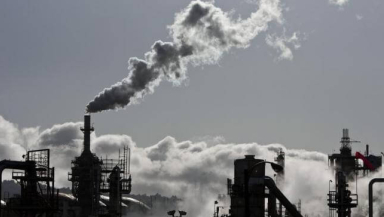
There has been much debate during recent months on whether or not the U.S. government should enforce stricter gun control laws, especially with statistics showing that guns claim 30,000 lives in America every year.
Unbeknown to many, however, there is a less publicised, but deadlier menace claiming the lives of more Americans annually: exposure to toxic substances in the workplace.
The Center for Public Integrity, a non-profit investigative journalism organisation, recently published a series of reports called "Unequal Risk," which showed that 50,000 Americans are killed annually by job-related exposures to toxic substances.
In addition to this, hundreds of thousands more Americans contract ailments related to exposure to toxic substances in the workplace every year.
According to the Center's report, these toxic substances are present in almost all occupations: from medical work to automotive repair, from clothing jobs to wood preservation.
The report also showed that most of the diseases caused by toxic exposure in the workplace could have been prevented had the U.S. government strictly enforced laws on these legally sanctioned diseases.
The Occupational Safety and Health Administration, the government agency primarily tasked to make sure that workers are protected against toxic substances, has admitted that it has not been able to perform its mandate well.
The nation's worker-protection laws have also been found to be very weak, with violations of the existing occupational safety legislation only tantamount to misdemeanor.
As a result, some of those victimised by toxic exposure in the workplace have resorted to litigation. Thirty-nine-year-old Kris Penny, for instance, sued telecommunications giant AT&T for his exposure to asbestos while installing fibre-optic cable, which caused him to have cancer called mesothelioma, a form of carcinoma of the mesothelium lining lungs, abdomen or heart; usually associated with exposure to asbestos dust.
"I'm not going to be the last guy this happens to, I can promise you," he said in an article published by the Center of Public Integrity.















